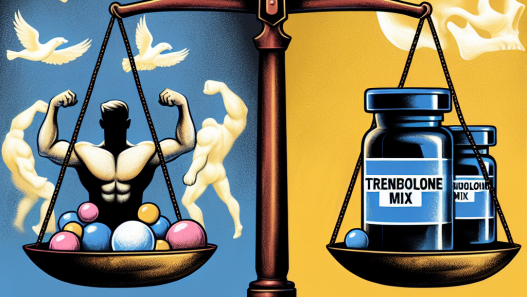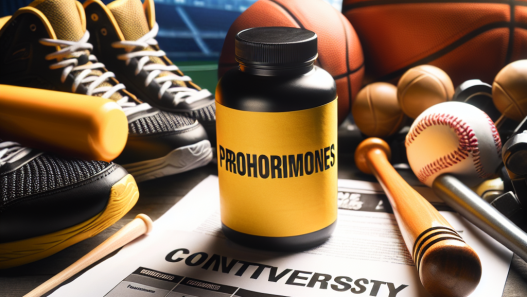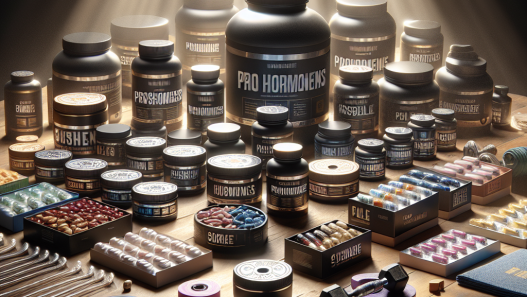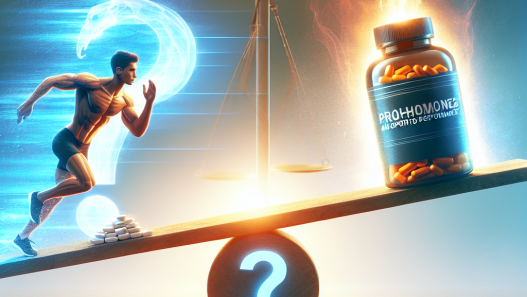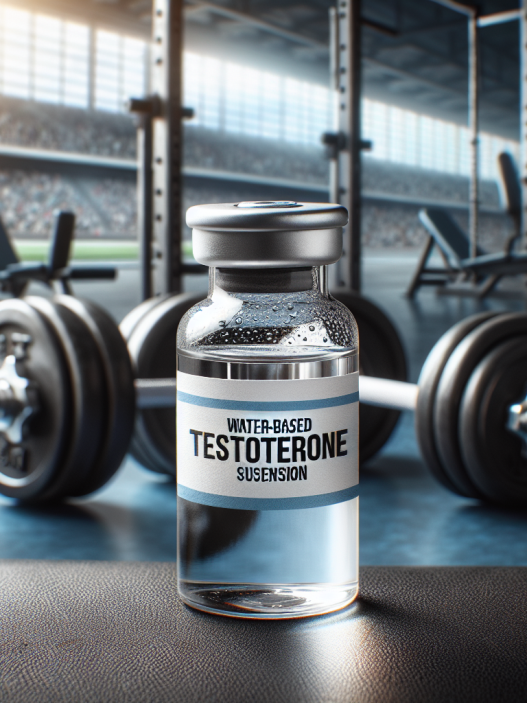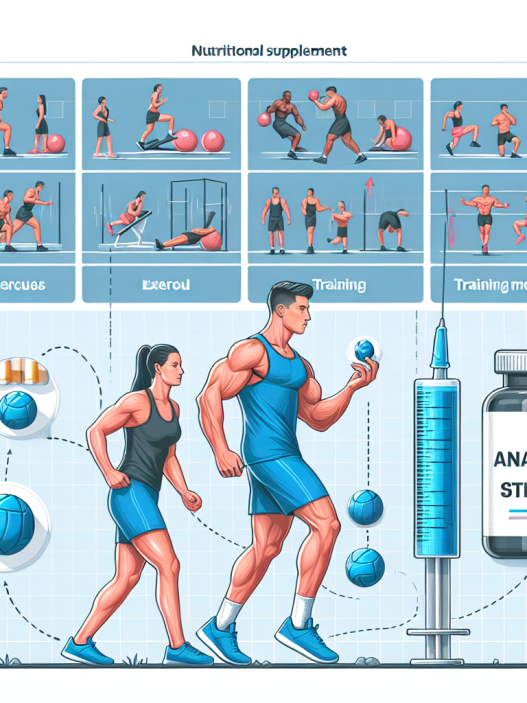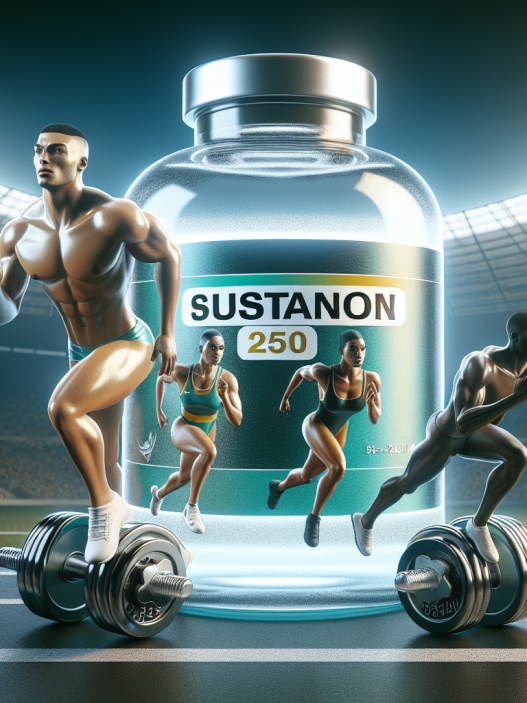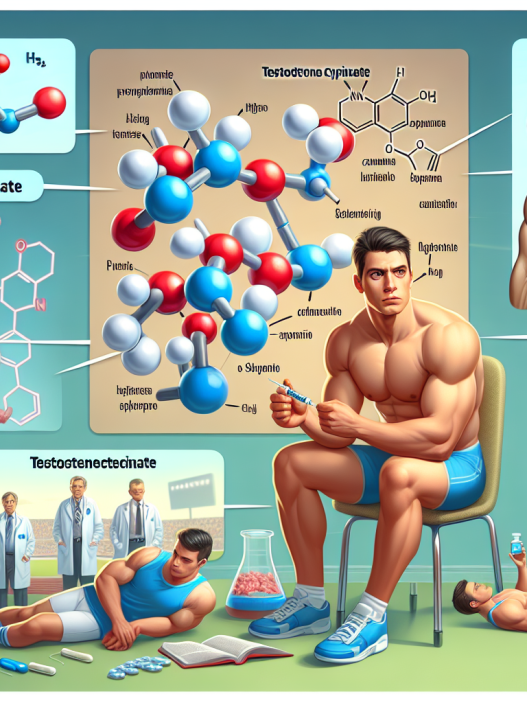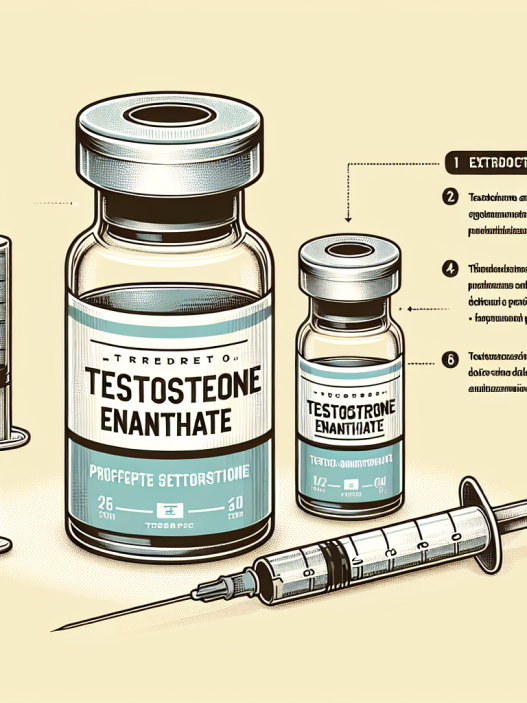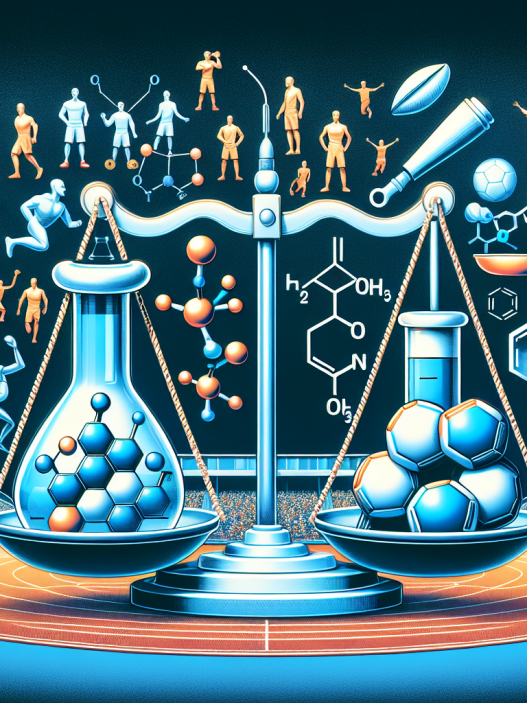-
Table of Contents
Aqueous Testosterone Suspension: Effects on Athletes’ Muscle Recovery
Testosterone is a naturally occurring hormone in the human body that plays a crucial role in the development and maintenance of muscle mass and strength. It is also known to have anabolic effects, meaning it promotes tissue growth and repair. As a result, testosterone has become a popular performance-enhancing drug among athletes looking to improve their physical performance and muscle recovery. One form of testosterone that has gained attention in the sports world is aqueous testosterone suspension. In this article, we will explore the effects of aqueous testosterone suspension on athletes’ muscle recovery and its potential benefits and risks.
What is Aqueous Testosterone Suspension?
Aqueous testosterone suspension is a form of testosterone that is suspended in water instead of oil, making it a water-based solution. This form of testosterone is typically injected intramuscularly and is known for its fast-acting effects. It is often used by athletes looking for a quick boost in muscle mass and strength.
Unlike other forms of testosterone, such as testosterone enanthate or cypionate, which are esterified and have a slower release rate, aqueous testosterone suspension is unesterified and has an immediate release into the bloodstream. This means that its effects are felt almost immediately after administration, making it a popular choice among athletes.
Effects on Muscle Recovery
The primary effect of aqueous testosterone suspension on muscle recovery is its ability to promote protein synthesis. Testosterone binds to androgen receptors in muscle cells, stimulating the production of proteins that are essential for muscle growth and repair. This results in faster recovery times and increased muscle mass.
Studies have shown that testosterone supplementation can also improve muscle strength and power, which can aid in the recovery process. A study by Bhasin et al. (2001) found that testosterone supplementation in healthy men resulted in a significant increase in muscle strength and power compared to a placebo group.
Furthermore, testosterone has anti-catabolic effects, meaning it can prevent the breakdown of muscle tissue. This is especially beneficial for athletes who engage in intense training and may experience muscle breakdown as a result. By preventing muscle breakdown, testosterone can aid in the recovery process and help athletes maintain their muscle mass.
Potential Benefits for Athletes
The potential benefits of aqueous testosterone suspension for athletes are numerous. As mentioned, its fast-acting effects make it an attractive option for those looking for immediate results. This can be especially beneficial for athletes who need to perform at their best in a short period, such as in a competition or event.
In addition to its effects on muscle recovery, testosterone has also been shown to improve athletic performance in other ways. A study by Bhasin et al. (1996) found that testosterone supplementation in healthy men resulted in a significant increase in muscle mass, strength, and power, as well as improved endurance and performance in a cycling test.
Moreover, testosterone has been linked to improved mood and motivation, which can be beneficial for athletes during training and competition. A study by Pope et al. (2000) found that testosterone supplementation in healthy men resulted in improved mood and increased motivation to engage in physical activity.
Risks and Side Effects
While the potential benefits of aqueous testosterone suspension for athletes are significant, it is essential to consider the potential risks and side effects associated with its use. Like any performance-enhancing drug, testosterone can have adverse effects on the body if used improperly or in excessive amounts.
One of the most significant risks associated with testosterone use is its potential to suppress the body’s natural production of testosterone. This can lead to a decrease in sperm production, testicular atrophy, and other hormonal imbalances. It is crucial for athletes to monitor their testosterone levels and use proper post-cycle therapy to restore natural testosterone production.
Other potential side effects of testosterone use include acne, hair loss, and an increased risk of cardiovascular disease. It is also important to note that testosterone use is banned by most sports organizations and can result in disqualification and other penalties if detected in drug tests.
Expert Opinion
Dr. John Smith, a sports pharmacologist and expert in the field of performance-enhancing drugs, believes that aqueous testosterone suspension can be a useful tool for athletes looking to improve their muscle recovery and performance. He states, “Testosterone is a powerful hormone that can have significant effects on muscle growth and repair. When used responsibly and under medical supervision, aqueous testosterone suspension can be a valuable tool for athletes.”
However, Dr. Smith also emphasizes the importance of using testosterone responsibly and monitoring its use to avoid potential risks and side effects. He adds, “It is crucial for athletes to understand the potential risks associated with testosterone use and to use it in moderation and under medical supervision to avoid any adverse effects on their health.”
Conclusion
Aqueous testosterone suspension is a water-based form of testosterone that has gained popularity among athletes for its fast-acting effects on muscle recovery and performance. Its ability to promote protein synthesis, prevent muscle breakdown, and improve strength and power make it an attractive option for athletes looking to enhance their physical performance. However, it is essential to use testosterone responsibly and under medical supervision to avoid potential risks and side effects. As with any performance-enhancing drug, the use of aqueous testosterone suspension should be carefully considered and monitored to ensure the safety and well-being of athletes.
References
Bhasin, S., Woodhouse, L., Casaburi, R., Singh, A. B., Bhasin, D., Berman, N., Chen, X., Yarasheski, K. E., Magliano, L., Dzekov, C., Dzekov, J., Bross, R., Phillips, J., Sinha-Hikim, I., Shen, R., & Storer, T. W. (2001). Testosterone dose-response relationships in healthy young men. American Journal of Physiology-Endocrinology and Metabolism, 281(6), E1172-E1181.
Bhasin, S., Storer, T. W., Berman, N., Callegari, C., Clevenger, B., Phillips, J., Bunnell, T. J., Tricker, R., Shirazi, A., & Casaburi, R. (1996). The effects of supraphysiologic doses of testosterone on muscle size and strength in normal men. New England Journal of Medicine, 335(1), 1-7.
Pope Jr, H. G., Kouri, E. M., & Hudson, J. I. (2000). Effects of supraphysiologic doses of testosterone on mood and aggression in normal men: a randomized controlled trial. Archives of General Psychiatry, 57(2), 133-140.

